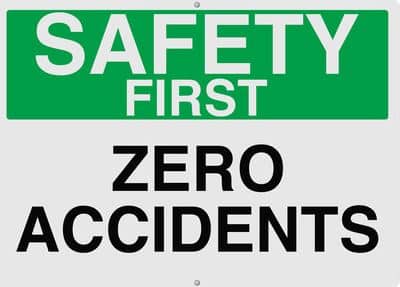OSHA Final Rule Analysis
On May 12, 2016, Occupational Safety and Health Administration (OSHA), an agency of Department of Labor published a final rule titled “Improve Tracking of Workplace Injuries and Illnesses; Final Rule” to be a part of 29 CFR Parts 1904 and 1902.
The publication of this regulation has produced some mild excitement in the drug and alcohol test industry. What has caused this excitement is interesting. Within the Preamble of this rule, OSHA has identified drug tests done as part of mandated post-injury testing and that adverse action that can discourage reporting and could be “perceived often perceived as an invasion of privacy, so if an injury or illness is very unlikely to have been caused by employee drug use.”
The rule goes on to state “if the method of drug testing does not identify impairment but only use at some time in the recent past, requiring the employee to be drug tested may inappropriately deter reporting.”
There are some further mentions of “impairment” in the Preamble but “impairment” is not identified in the body of the rule. There is no mention of how to determine impairment but does go on to state that post-injury drug tests cannot be used unless the test can demonstrate impairment.
If employers do post-injury drug tests that cannot demonstrate impairment, they could be liable to OSHA for penalty action.
However, OSHA made the following statement in response to concerns raised by commenters: “raised the concern that the final rule will conflict with drug testing requirements contained in workers’ compensation laws. This concern is unwarranted. If an employer conducts drug testing to comply with the requirements of a state or federal law or regulation, the employer’s motive would not be retaliatory and the final rule would not prohibit such testing. This is doubly true because Section 4(b)(4) of the Act prohibits OSHA from superseding or affecting workers’ compensation laws. 29 U.S.C. 653(b)(4).”
An interpretation of the above statement by OSHA implies that employers regulated by the Department of Transportation (DOT); Nuclear Regulatory Commission (NRC); and National Space and Aerospace Administration (NASA) can do testing ONLY on those employees that are covered by their respective regulations in positions that are regulated, i.e., CDL holders, FAA licensed pilots or USCG crewmembers.
As an example a trucking company can do DOT required post-accident testing on those personnel that are in a safety-sensitive position. If other company personnel were injured and the company wanted to do post-injury testing, that test methodology would have to demonstrate that the individual was impaired to be in compliance with OSHA requirements.
The OSHA regulations apply to companies with 10 or more employees. This is in accordance with OSHA regulations at 29 CFR part 1904
At the current time, there is not a drug test that can demonstrate impairment so it will be interesting to see how this will pay out with employers. Will an employer with deep pockets challenge OSHA on how to define and identify impairment that can withstand a court challenge and allow DOT style drug testing? Time will tell.
Written by Robert C. Schoening







